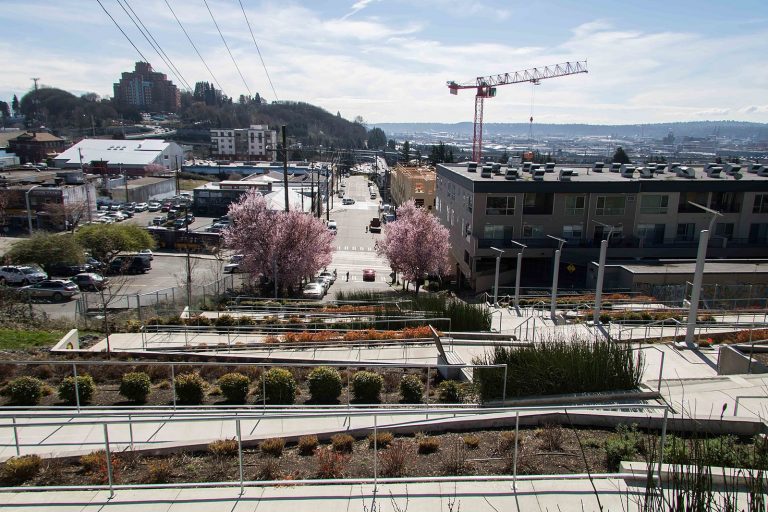“We need reparations for our Black and brown communities,” said Pastor Angela Ying of Bethany United Church of Christ one sunny morning in June in front of New Hope Missionary Baptist Church in the historically Black Central District neighborhood. “Isn’t it bad enough that the land was stolen from the Duwamish people?”
To many, the Black Lives Matter movement has always been about much more than an uprising against police brutality. The health and economic inequities emphasized by the current COVID-19 crisis has firmed that resolve. Black communities nationwide have been disproportionately impacted by the virus while at the same time earning less. In 2018, the median income for a household headed by a Black person in Seattle was $42,500, compared with $105,100 for one headed by a white person, according to the U.S. Census Bureau.
Overall, the Black population in Seattle is at its lowest point in 50 years, though it has increased in the rest of King County, where the cost of living can be lower. Activists see access to land as one way to build the wealth denied to them by systemic racism and to begin to even the playing field.
“I call it reparations, because if it’s not reparations, it becomes sort of charitable, you know, and it’s not a charitable offer. It’s a payment for a debt,” said Donald King, a professor of architecture at the University of Washington who has lived in the Central District for approximately 40 years and is part of The Nehemiah Initiative, a church-led, community-based partnership designed to preserve and revitalize the Central District.
“So people say, well, why are you doing this? This is racist,” King said, referring to activists’ demand for land. “You’re not doing it for white people. But white people didn’t have to suffer under the unconstitutional actions that were taken with redlining and other things.” The practice of redlining after the Great Depression encouraged banks to loan money to would-be home buyers in mostly white neighborhoods.
